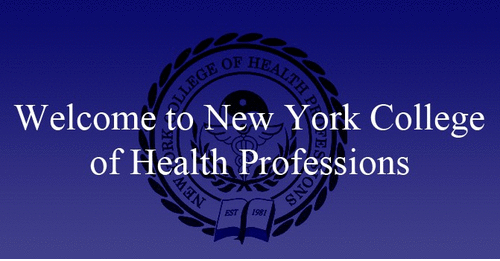Acupuncture is an ancient form of complementary medicine that is now becoming a fast-growing field in the West. It is not until the late 20th century that acupuncture began to cohesively work with Western medicine to relieve ailments such as post-operative nausea, anxiety and chronic pain among others. To some people in the West, acupuncture and other methods of natural healing have replaced manufactured pharmaceuticals, when they did not get relief. Due to the increasing interest in natural healing methods, Acupuncture Schools have been growing nationwide to train and license students.
Originating in China over 5,000 years ago, acupuncture practitioners insert thin needles into select acupressure points in order to correct the imbalance in the flow of qi, or energy. The needles are then manipulated manually or through electrical stimulation. By stimulating certain acupressure points, the flow of qi in the energy channels, or meridians as they are referred to, is improved allowing for patients to feel relief from their pain or ailment.
Today, acupuncture is widely practiced in West for a variety of conditions ranging from chronic pain to fertility issues. According to the 2007 National Health Interview Survey, an estimated 3.1 million U.S. adults and 150,000 children had used acupuncture in the previous year. Due to the growth of the field and to ensure patient safety, the FDA regulates the needles used for acupuncture by labeling them as single-use and disposable, dictating that they must be sterile and not toxic. These needles are only accessible to licensed acupuncture practitioners.
As the demand for acupuncturists increases, so does the interest in becoming a professional in this field. In order to become an acupuncturist, one must complete undergraduate and graduate courses to earn a Masters degree at an Acupuncture School. Before choosing a school, consider several things:
New York College of Health Professions is an exemplary Acupuncture School that is accredited, allows for working students to attend school part time, and has 4 conveniently located locations on Long Island and in New York City. Their Graduate School of Oriental Medicine offers a 145-credit, nine-trimester Acupuncture Program. Students graduate with a Bachelor of Professional Studies/ Master of Science degree in Health Sciences/ Acupuncture. This Acupuncture program was the first in New York to be approved by the New York State Education Department and is accredited by both the Accreditation Commission for Acupuncture and Oriental Medicine (ACAOM), the recognized accrediting agency for the approval of programs preparing Acupuncture practitioners and by the New York State Board of Regents and Commissioner of Education, a nationally recognized accrediting agency.
Originating in China over 5,000 years ago, acupuncture practitioners insert thin needles into select acupressure points in order to correct the imbalance in the flow of qi, or energy. The needles are then manipulated manually or through electrical stimulation. By stimulating certain acupressure points, the flow of qi in the energy channels, or meridians as they are referred to, is improved allowing for patients to feel relief from their pain or ailment.
Today, acupuncture is widely practiced in West for a variety of conditions ranging from chronic pain to fertility issues. According to the 2007 National Health Interview Survey, an estimated 3.1 million U.S. adults and 150,000 children had used acupuncture in the previous year. Due to the growth of the field and to ensure patient safety, the FDA regulates the needles used for acupuncture by labeling them as single-use and disposable, dictating that they must be sterile and not toxic. These needles are only accessible to licensed acupuncture practitioners.
As the demand for acupuncturists increases, so does the interest in becoming a professional in this field. In order to become an acupuncturist, one must complete undergraduate and graduate courses to earn a Masters degree at an Acupuncture School. Before choosing a school, consider several things:
- Accreditation – If a school is accredited, it means that they are up to standards of licensing and certification requirements. Both are important when seeking an occupation as an acupuncturist.
- Time – If you are planning to be a working student, make sure that the Acupuncture School you choose has flexible classes to fit your schedule.
- Convenience – Getting to school should be simple. Ensure that the school is in your vicinity and/or is near public transportation so that you are always able to attend class.
- Internship – Be sure your school offers you many months of hands-on internships treating real patients under supervision of your instructors.
New York College of Health Professions is an exemplary Acupuncture School that is accredited, allows for working students to attend school part time, and has 4 conveniently located locations on Long Island and in New York City. Their Graduate School of Oriental Medicine offers a 145-credit, nine-trimester Acupuncture Program. Students graduate with a Bachelor of Professional Studies/ Master of Science degree in Health Sciences/ Acupuncture. This Acupuncture program was the first in New York to be approved by the New York State Education Department and is accredited by both the Accreditation Commission for Acupuncture and Oriental Medicine (ACAOM), the recognized accrediting agency for the approval of programs preparing Acupuncture practitioners and by the New York State Board of Regents and Commissioner of Education, a nationally recognized accrediting agency.


No comments:
Post a Comment